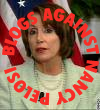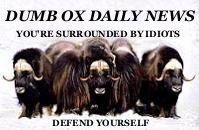What Does Trickle Down Theory Mean?
An economic theory which states that investing money in companies and giving them tax breaks is the best way to stimulate the economy.
Investopedia explains Trickle Down Theory
Proponents of this theory believe that when government helps companies, they will produce more and thereby hire more people and raise salaries. The people, in turn, will have more money to spend in the economy.
Quick example (hypothetical): I have a small in home pet care business that expands into two counties because the rich need and want my services while they are at work (earning more money) or on vacation (spreading their own wealth around). This means more money in my pocket, but I need help now that business has expanded so I hire 4 people. More money in their pocket and they go out to buy the products and services they need and want.
As a result of expanding business I make purchases of products and services to make my business grow. More money in those business's pockets therefore in their employees pockets as well so they start purchasing more products and services from their vendors and so it goes. That's how trickle down works.
Trickle Up
Investopedia did not offer a Trickle Up definition
The trickle up effect is an economic theory used to describe the flow of wealth from the poor to the affluent; it is opposite to the trickle down effect.
Relationship to the trickle down effect
Proponents of the trickle down effect[who?] believe that a free market, which is uninhibited by heavy taxation and other forms of government controls, will cause an increase in wealth for society as a whole, part of which will "trickle down" from the affluent to the less wealthy, making the latter group better off. In this model, relative poverty may increase, but proponents state that this is a moot point because absolute poverty decreases. Opponents to this theory may point out that a large gap in the distribution of wealth can lead to a similarly large gap in power and influence, thus making this economic model undesirable.
The trickle down effect is usually used to describe a process by which benefits to the wealthy "trickle down" to benefits for the poor. The trickle up effect, in a corollary to this, states that benefiting the poor directly (for example through micro loans) will boost the productivity of the society as a whole and thus those benefits will, in effect, "trickle up" to benefits for the wealthy.[1]
Possible causes
The trickle up effect states that benefits to the wealthy will be realized due to an increase in sales relative to the amount of benefits that are given to the poor. The trickle up effect argues itself as more effective than the trickle down effect because people who have less tend to buy more. In other words, the poor are more inclined than the wealthy to spend their money. This being so, proponents of the trickle up effect believe that if the lower and lower-middle classes are given benefits, such as tax breaks or subsidies, the increased funds would be spent at a much higher rate than would the upper class, given similar fund increases. Furthermore, the trickle up effect argues, many upper-class individuals do not spend their entire yearly salary to begin with, which is an indication that they will not spend any additional funds. Instead, they will save additional funds, thereby withholding those funds from the economy and increasing the gap between the rich and the poor. The trickle up effect avoids this pitfall by giving more money to those who would be more inclined to spend it.
*****************************************
In other words, take money from the rich, give it to the poor to spend. What incentive is there for the poor to save their money instead so that they too could become richer? Isn't this rewarding bad decision making and encouraging yet more bad decision making?
The rich are rich because they made good decisions ie...saved/invested their money. Fine art, valuable jewelry, property purchases, stocks/bonds/mutual funds, nice homes . . . all have high resale values. They INVESTED their money in things of value.
Trickle up is simply another term for Marxism or socialism. Take your pick. It's a redistribution of wealth taken from laborers in the form of taxes. It's another way to incite class warfare/envy.
Swaminomics
I chose this article/example simply because of its absurdity. However its author does live in a socialist country so I suppose I shouldn't be too surprised.
First, the cotton farmer grows his crop, pays the agricultural labour involved, and then sells the crop at a profit. Note that the agricultural worker gets his money first, the grower second. Next the cotton moves to a ginning factory to remove the seed. The transporter and ginner make their living in the process. Then the cotton moves to a mill. The staff there are paid their wages and salaries even while processing the cotton, whether or not the mill is profitable. When the cloth is ready, it is sold through agents or traders who also earn commissions or profits. Only at this final point, when the sales are made, does any profit accrue to the textile magnate. At this point, profit trickles up the top.
************************
My questions are: Where did this supposedly poor (since we're using trickle up economics) cotton farmer get the money to purchase his cotton seed, fertilizer, and irrigation, his land, the implements needed to plant/harvest the cotton seed, and pay the taxes on the property? Borrow it? Let's say he borrowed it, because if he stole it he'd be in jail and we wouldn't be having this discussion.
Now, who does the lending? The rich. Or did he get a government small business loan which is actually a redistribution of wealth gleaned from some taxpayer somewhere.
Why and how is he paying his employees before he sells his crop?
Did the transporter buy the crop from the farmer so he could sell it to the ginner?
And you can see where the rest of this is going. How do you pay staff if your mill is not profitable? How long can you possibly stay in business if you are not turning a profit? If you have employees does that not make you one of the rich?
But wait, the author isn't done with his article yet: The business magazine Fortune discloses that the average profit of the 500 largest companies in the world is only 3 per cent of sales. That means 97 per cent goes first to other participants in these businesses, and only 3 per cent trickles to the top.
Could the other participants in these businesses who swallow up the 97% of sales be employees? Share holders? Suppliers? They do have to be paid too.
Screech about evil capitalism/rich/trickle down all you like, it works far better than things that trickle upward defying the laws of physics.
Subscribe to:
Post Comments (Atom)
This Country Girl

- Melissa
- Part time wanna be pundit. Full time wife and mom. I work part time, own my own business, and homeschool my kids. It's a busy busy life these days.










3 comments:
Trickle Down is good if there wasn't so much corruption in government and on wall street.
The problem with the trickle down theory is most of the money is trickling down to China, Mexico and other countries outside the U.S.
I think a better option is for government to get out of the way and let the markets take care of themselves. The government has made it impossible for a small business to survive or compete against these corporate Giants.
I'm all for capitalism but what we have now is not capitalism, it's the government allowing big greedy corporations to get away with things that no small business could ever do.
www.trickler.org
see how pay and the USA change in a more equal or less equal economy.
"What incentive is there for the poor to save their money instead so that they too could become richer?"
This is absolutely idiotic. How can they save money they don't have? When it costs so much to live there is no money left to save.
Post a Comment